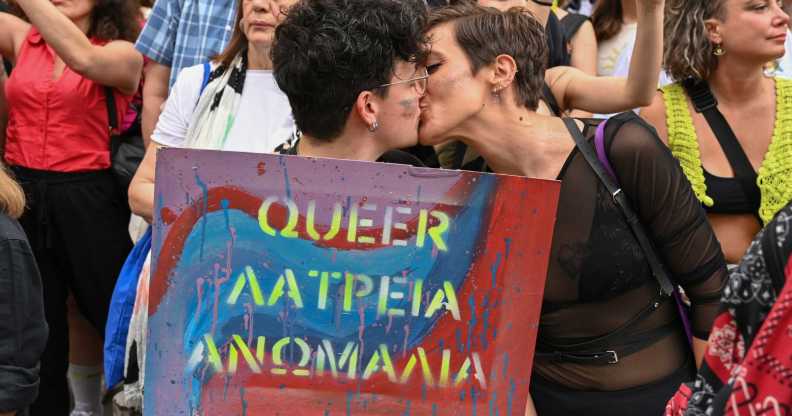Greece will legalise same-sex marriage, despite church opposition

Greek prime minister Kyriakos Mitsotakis has promised to legalise same-sex marriage in Greece. (Nicolas Koutsokostas/NurPhoto via Getty Images)
The Greek government is pushing ahead with its same-sex marriage legislation, despite opposition from the church.
In July, the prime minister of Greece, Kyriakos Mitsotakis, promised to legalise same-sex marriage, saying that “Greek society is much more ready and mature.”
As of 2015, Greece recognises cohabitation agreements for same-sex couples, offering some of the rights and benefits of marriage.
The finalised version of the legislation, which is being formulated to minimise grounds for opposition, is expected to prompt debates focusing on rights, especially the parental rights of LGBTQ+ couples, as reported by Neos Kosmos.
On Wednesday (27 December), government spokesperson Pavlos Marinakis addressed misconceptions about the bill.
“There is a big misunderstanding about what we will bring, what we won’t bring,” he said, stating the need to wait for the official text in order to fully understand the proposal.
A day after he added that legislation would be brought to parliament during the house’s current term, which ends in 2027.
The statement follows the Church’s governing Holy Synod issuing a 1,500-word opinion.
In opposition to the legislation the church argued that children are being are being treated as “accessories” and “companion pets” for gay couples, as reported by AP.
“We always listen to the opinions of the Church with respect,” Marinakis said.
“But at the same time, we are implementing our policy, and will listen to the views of society, civil society, the citizenry, institutions, and parties in total.
“Children are not companion pets for those who wish to feel like a guardian, and are not ‘accessories’ to formalise or make same-sex cohabitation socially acceptable.”
The Greek prime minister, who first came to power in 2019, appointed a committee to work on a national strategy for improving the rights of LGBTQ+ citizens in 2021 and has since lifted the ban on gay men donating blood and banning unnecessary and “abusive” intersex genital mutilation of children.

